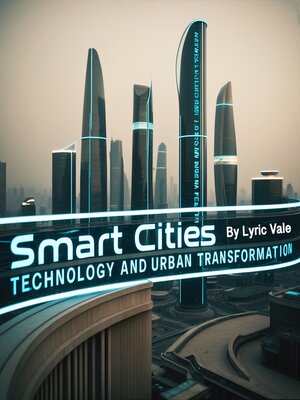
Sign up to save your library
With an OverDrive account, you can save your favorite libraries for at-a-glance information about availability. Find out more about OverDrive accounts.
Find this title in Libby, the library reading app by OverDrive.



Search for a digital library with this title
Title found at these libraries:
| Library Name | Distance |
|---|---|
| Loading... |
In recent years, the concept of smart cities has gained significant attention as urban areas face unprecedented growth and the challenges that come with it. As populations swell and technological advancements accelerate, cities around the world are exploring ways to harness the power of innovation to improve the quality of life for their residents. Smart cities represent a dynamic transformation where technology is seamlessly integrated into urban infrastructure, services, and governance. These cities use data, sensors, and interconnected systems to optimize functions such as traffic flow, energy consumption, healthcare, and public safety, creating more efficient, sustainable, and livable urban environments.
The rise of smart cities is driven by the need to address a host of urban issues that have become increasingly difficult to manage through traditional methods. Rapid urbanization has strained resources, from transportation networks to healthcare services, resulting in overcrowded cities and stretched public services. At the same time, the digital revolution has made it possible to rethink how cities are designed and operated, offering unprecedented opportunities for innovation. In smart cities, data is collected from a vast array of sensors and devices embedded throughout the urban landscape, enabling real-time monitoring and management of everything from traffic congestion to energy use.
The development of smart cities is also closely tied to sustainability. With growing concerns about climate change and the depletion of natural resources, urban planners are turning to smart technologies to reduce environmental impact. For instance, energy-efficient buildings, waste management systems, and smart grids can significantly lower a city's carbon footprint. Moreover, renewable energy sources, such as solar and wind power, are increasingly being integrated into urban infrastructure, creating more sustainable energy systems.







